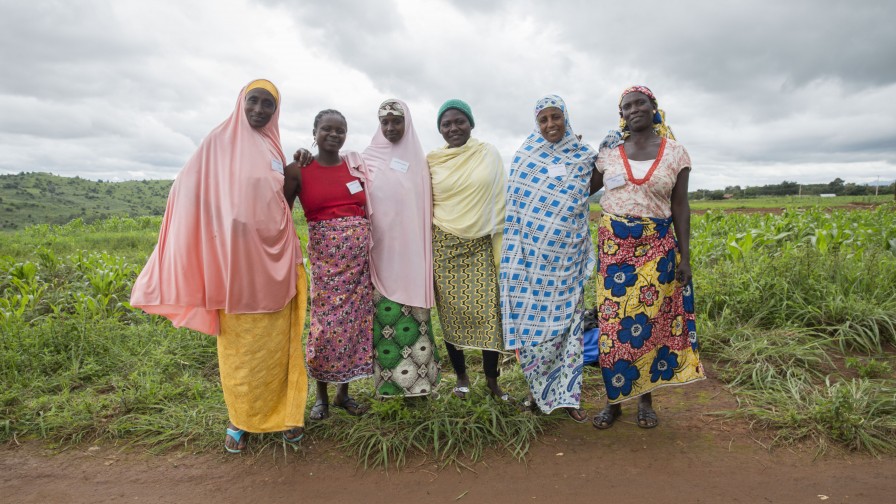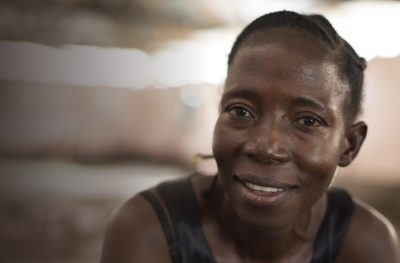
We advocate to achieve long-lasting changes for marginalized women survivors of war, using our program based evidence and working in partnership with like-minded organizations to influence policy and practice.
We seek to ensure that the voices of marginalized women survivors of conflict are heard at all levels of decision-making processes.
We advocate to achieve long-lasting changes for marginalized women survivors of war, using our programmatic evidence and working in partnership with like-minded organizations to influence policy and practice.
Women survivors of conflict face many inter-connecting barriers to fully enjoying their fundamental rights. We have identified key international frameworks and issues that provide the largest challenge for women and the greatest opportunity to create fundamental changes that will affect marginalized women survivors of conflict.
This is how we accomplished our mission in 2022:
Throughout 2022, we conducted research – including interviews, surveys and focus groups discussions - to hear directly from women affected by conflict about their experiences, needs, priorities and hopes for the future. We translated their input into evidence-based recommendations to inform our advocacy and developed a number of policy briefs and research reports. In March we published “No One Hears Our Voices”, a policy report with recommended actions based on the perspectives and experiences of Afghan women. On World Refugee Day we published “What of Our Unfulfilled Promises?”, a policy report that urges decisionmakers to listen to Syrian refugees - especially women living in the Kurdistan Region of Iraq (KRI) - who ask not to be forgotten amidst the war that displaced them over a decade ago. We also published thematic policy briefs on violence against women, sharing our research findings to illustrate the community attitudes and policy implementation gaps that perpetuate the harmful practices of physical domestic abuse, rape and economic deprivation.
This year we have actively sought opportunities to prioritise the inclusion and participation of our colleagues and partners in high-level decision-making spaces. In March, Naomi Gokwat, our Programme Coordinator in Bauchi, Nigeria, represented us at a discussion on the impact of the UK Aid cuts on women and girls coordinated by the UK Government’s International Development Committee. Naomi emphasised the lack of transparency and consultation when the UK Government cut our programme in Bauchi. Later in the year, our DRC Country Director, Rachel Boketa, represented us at the Open Debate on Protection of Civilians at the UN Security Council. Briefing the UN Security Council on gender-transformative approaches Rachel said: “To ensure [women’s] protection, I ask that the global humanitarian community and member states think and act holistically, locally and transformatively…”. And in early September 2022, we aimed to create space for Afghan women’s rights activists’ voices to be heard by facilitating a delegation of five women leaders from Afghanistan, now living in exile across the world, to travel to New York and engage in direct dialogue with UN high-level representatives.
The Sustainable Development Goals (SDGs) are underpinned by a commitment to ‘Leave No One Behind’ – which means that the very success of the Goals is dependent on reaching the most marginalised. Our work with women affected by conflict directly contributes to this agenda.
Since 2017, we have committed to using the SDGs as a framework for annually sharing the data we collect from our programme to highlight the realities of women affected by conflict and our contribution towards the implementation of the Goals. In September, we published our latest data (from 2021) and shared our top 10 highlights.
We have also continued to advocate for accelerated progress on the SDGs, and this year led the drafting of the gender equality chapter of a new sector-wide report assessing whether the UK Government’s is meeting its commitment to delivering the SDGs. We called on the UK Government to listen to women’s rights organisations, to partner with their expertise and to invest in evidence and data that moves beyond national averages.
Since 2021, with funding from the UK’s Conflict, Stability and Security Fund, we have been working in partnership with WILPF and Saferworld to provide 21 women’s rights organizations in Nigeria, South Sudan and Yemen with an average of £35,000 in flexible core funding, with relatively easier requirements and process.
This funding has enabled them to continue responding to their self-identified community needs even when these change unexpectedly, strengthen their organizational capacities to work independently and allowed them to come together and learn from each other.
In October, we published a joint policy brief to present the main outcomes and learnings from this project so far and set out recommendations for donors and international organizations seeking to meaningfully support women’s rights organizations in fragile and conflict-affected states.

We advocate to achieve long-lasting changes for marginalized women survivors of war, using our program based evidence and working in partnership with like-minded organizations to influence policy and practice.

